Dignitatis humanae is the Second Vatican Council's Declaration on Religious Freedom. In the context of the council's stated intention "to develop the doctrine of recent popes on the inviolable rights of the human person and the constitutional order of society", Dignitatis humanae spells out the church's support for the protection of religious liberty. It set the ground rules by which the church would relate to secular states.
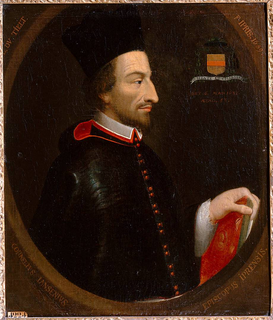
Jansenism was an early modern theological movement within Catholicism, primarily active in the Kingdom of France, that emphasized original sin, human depravity, the necessity of divine grace, and predestination. It was declared a heresy by the Catholic Church.
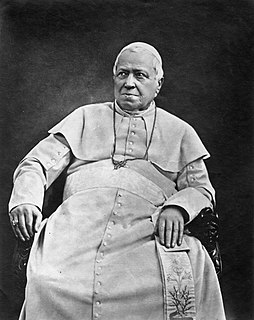
Pope Pius IX was head of the Catholic Church from 1846 to 1878, the longest verified papal reign. He was notable for convoking the First Vatican Council in 1868 and for permanently losing control of the Papal States in 1870 to the Kingdom of Italy. Thereafter he refused to leave Vatican City, declaring himself a "prisoner of the Vatican".
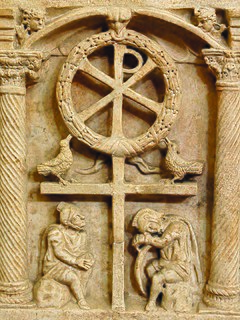
In politics, integralism, integrationism or integrism is the principle that the Catholic faith should be the basis of public law and public policy within civil society, wherever the preponderance of Catholics within that society makes this possible. Integralists uphold the 1864 definition of Pope Pius IX in Quanta cura that the religious neutrality of the civil power cannot be embraced as an ideal situation and the doctrine of Leo XIII in Immortale Dei on the religious obligations of states.
Quanta cura was a papal encyclical issued by Pope Pius IX on 8 December 1864. In it, he decried what he considered significant errors afflicting the modern age. These he listed in an attachment called the Syllabus of Errors, which condemned secularism and religious indifferentism.

The Syllabus of Errors is a document issued by the Holy See under Pope Pius IX on 8 December 1864, as an appendix to the Quanta cura encyclical. It condemns a total of 80 errors or heresies, articulating Catholic Church teaching on a number of philosophical and political questions.

Modernism in the Catholic Church attempts to reconcile Catholicism with modern culture, specifically an understanding of the Bible and Catholic tradition in light of the historical-critical method and new philosophical and political developments of the late 19th and early 20th centuries.
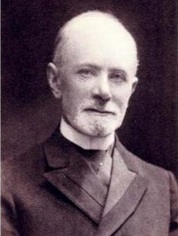
Alfred Firmin Loisy was a French Roman Catholic priest, professor and theologian generally credited as a founder of modernism in the Roman Catholic Church. He was a critic of traditional views of the interpretation of the Bible, and argued that biblical criticism could be helpful for a theological interpretation of Sacred Scripture. His theological positions brought him into conflict with the church's authorities, including Pope Leo XIII and Pope Pius X. In 1893, he was dismissed as a professor from the Institut Catholique de Paris. His books were condemned by the Roman Curia, and in 1908 he was excommunicated.

Exsurge Domine is a papal bull promulgated on 15 June 1520 by Pope Leo X. It was written in response to the teachings of Martin Luther which opposed the views of the Church. It censured forty-one propositions extracted from Luther's Ninety-five Theses and subsequent writings, and threatened him with excommunication unless he recanted within a sixty-day period commencing upon the publication of the bull in Saxony and its neighboring regions. Luther refused to recant and responded instead by composing polemical tracts lashing out at the papacy and by publicly burning a copy of the bull on 10 December 1520. As a result, Luther was excommunicated in 1521.
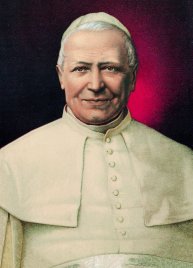
Quibus quantisque malis was a Papal Allocution of Pius IX addressed to the Consistory of Cardinals on April 20, 1849, discussing the recent political atmosphere.

A dogma of the Catholic Church is defined as "a truth revealed by God, which the magisterium of the Church declared as binding." The Catechism of the Catholic Church states:
The Church's Magisterium asserts that it exercises the authority it holds from Christ to the fullest extent when it defines dogmas, that is, when it proposes, in a form obliging Catholics to an irrevocable adherence of faith, truths contained in divine Revelation or also when it proposes, in a definitive way, truths having a necessary connection with these.

Papal infallibility is a dogma of the Catholic Church which states that, in virtue of the promise of Jesus to Peter, the pope when he speaks ex cathedra is preserved from the possibility of error on doctrine "initially given to the apostolic Church and handed down in Scripture and tradition". It does not mean that the pope cannot sin or otherwise err in most situations.
The invincible ignorance fallacy, also known as argument by pigheadedness, is a deductive fallacy of circularity where the person in question simply refuses to believe the argument, ignoring any evidence given. It is not so much a fallacious tactic in argument as it is a refusal to argue in the proper sense of the word. The method used in this fallacy is either to make assertions with no consideration of objections or to simply dismiss objections by calling them excuses, conjecture, etc. or saying that they are proof of nothing, all without actually demonstrating how the objection fit these terms. It is similar to the ad lapidem fallacy, in which the person rejects all the evidence and logic presented, without providing any evidence or logic that could lead to a different conclusion.

The papacy of Pius XII began on 2 March 1939 and continued to 9 October 1958, covering the period of the Second World War and the Holocaust, during which millions of Jews and others were murdered by Adolf Hitler's Germany. Before becoming pope, Cardinal Pacelli served as a Vatican diplomat in Germany and as Vatican Secretary of State under Pius XI. His role during the Nazi period has been closely scrutinised and criticised. His supporters argue that Pius employed diplomacy to aid the victims of the Nazis during the war and, through directing his Church to provide discreet aid to Jews and others, saved hundreds of thousands of lives. Pius maintained links to the German Resistance, and shared intelligence with the Allies. His strongest public condemnation of genocide was, however, considered inadequate by the Allied Powers, while the Nazis viewed him as an Allied sympathizer who had dishonoured his policy of Vatican neutrality.
The public statements of Pope Pius XII on the Holocaust, or lack thereof, are one of the most controversial elements of the historical debate about Pope Pius XII and the Holocaust. Pius XII's statements have been scrutinized as much, if not more, than his actions during the same period. Pius XII's statements, both public and private, are quite well documented in the Vatican Secret Archives; eleven volumes of documents from his papacy were published between 1965 and 1981 in Actes et documents du Saint Siège relatifs à la Seconde Guerre Mondiale.

The theology of Pope Pius IX championed the pontiff's role as the highest teaching authority in the Church.
The modern history of the papacy is shaped by the two largest dispossessions of papal property in its history, stemming from the French Revolution and its spread to Europe, including Italy.
Invincible ignorance is used in Catholic moral theology to refer to the state of persons who are, through no fault of their own, ignorant of the fact that the Christian message is true. It is the opposite of the term vincible ignorance. The first Pope to use the term officially seems to have been Pope Pius IX in the allocution Singulari Quadam and the encyclicals Singulari Quidem and Quanto Conficiamur Moerore. The term, however, is far older than that. Aquinas, for instance, uses it in his Summa Theologica, and discussion of the concept can be found as far back as Origen.
In the Roman Catholic Church, a papal allocution is a solemn form of address or speech from the throne employed by the Pope on certain occasions. It is delivered only in a secret consistory at which the cardinals alone are present.
Johannes van Santen served as the fourteenth Archbishop of Utrecht from 1825 to 1858. He was part of the last attempt of the Church of Utrecht to reconcile with the Roman Catholic Church at that time.










